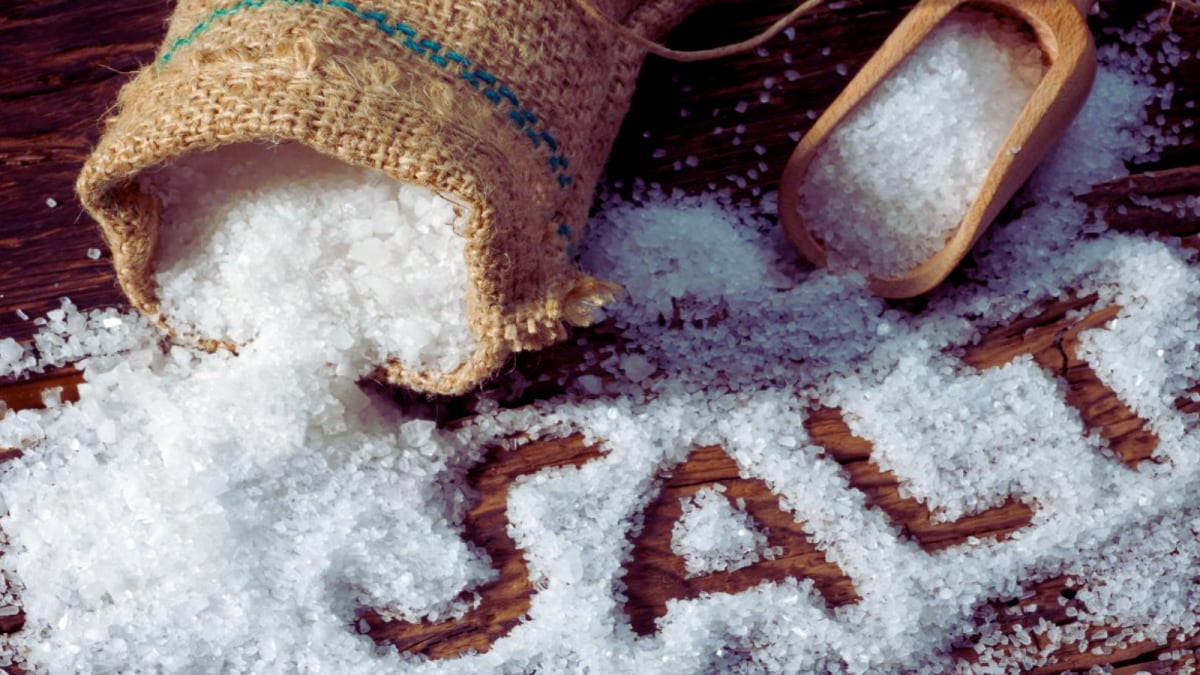Last Updated:
Frequent painkiller use, excess salt, and over-hydration can silently harm kidney health, experts warn.

Reducing even a small quantity of salt is a meaningful starting point for individuals with hypertension.
Kidneys are vital organs that filter waste, balance fluids, and regulate blood pressure. Yet, everyday lifestyle choices like frequent painkiller use, excessive salt consumption, or even drinking too much water can silently damage these organs over time. Two specialists, Dr. Kshitij Raghuvanshi, Urologist, Ruby Hall Clinic, Pune, and Dr. Vijay Patel, Consultant Nephrologist, Saifee Hospital, Mumbai, share insights into how these common practices affect kidney health.
Painkillers and Kidney Damage
According to Dr Raghuvanshi, frequent use of over-the-counter painkillers, particularly non-steroidal anti-inflammatory drugs (NSAIDs) such as ibuprofen and naproxen, can be harmful without medical supervision.
“These medicines work by blocking prostaglandins, which cause pain and inflammation. But prostaglandins also regulate blood flow to the kidneys. By suppressing them, NSAIDs may reduce blood flow, leading to acute kidney injury—especially in people with pre-existing kidney disease, heart problems, or dehydration,” he explains.
Long-term or excessive use, he adds, can result in chronic interstitial nephritis, which may progress to permanent kidney failure. The risks multiply when multiple painkillers are combined or when the recommended dosage is exceeded.
Dr. Patel further emphasizes that NSAIDs can cause not only acute kidney injury (AKI) and chronic kidney disease (CKD) but also glomerular diseases like nephrotic syndrome, interstitial nephritis, and accelerated hypertension.
“Patients at highest risk include the elderly, those with dehydration, heart failure, underlying CKD, or those already on ACE inhibitors, ARBs, or diuretics,” says Dr. Patel.
Salt Intake: A Hidden Threat
Salt is another common culprit. Dr. Raghuvanshi points out that regardless of whether it is table salt, sea salt, or Himalayan pink salt, the chemical composition is essentially the same, sodium chloride.
“High sodium intake raises blood pressure, one of the leading causes of kidney damage. When the body consumes excess salt, the kidneys must work harder to expel it, causing strain that may eventually lead to CKD. Reducing overall sodium intake not just switching salts is key to protecting kidney function,” he advises.
Expanding on this, Dr. Patel explains that high salt consumption damages kidneys through several mechanisms:
Blood pressure elevation – The more sodium consumed, the higher the blood pressure, directly harming kidney function.
Salt-sensitive hypertension – In such individuals, excess salt increases intraglomerular pressure and urinary albumin excretion, accelerating kidney damage.
Blood pressure–independent effects – “A high sodium diet also enhances sympathetic tone, increases oxidative stress and inflammation, causes endothelial dysfunction and vascular stiffness, and promotes tissue fibrosis through activation of transforming growth factor-β,” notes Dr. Patel.
Recent studies have also shown sodium accumulation in the skin and muscles of hypertensive and CKD patients, suggesting new pathways linking salt intake to organ damage.
“Keeping daily salt intake below 2 grams can lower blood pressure, slow CKD progression, and improve cardiovascular health,” he advises.
The Myth of Over-Hydration
While drinking enough water is essential, Dr. Raghuvanshi warns against the misconception that excessive water intake prevents kidney disease.
“Consuming extremely high amounts like six to seven liters daily does not protect kidneys and may instead cause hyponatremia, where blood sodium levels fall dangerously low,” he explains.
For most adults, two to three liters per day is sufficient, depending on activity, climate, and health status.
Protecting Kidney Health
Both experts agree, moderation is key. Avoiding unnecessary painkillers, keeping salt intake under control, and maintaining balanced hydration can significantly reduce the risk of kidney damage.
“Being informed and cautious with medications, salt intake, and hydration habits is essential to maintaining healthy kidneys and overall well-being,” concludes Dr. Raghuvanshi.

Swati Chaturvedi, a seasoned media and journalism aficionado with over 10 years of expertise, is not just a storyteller; she’s a weaver of wit and wisdom in the digital landscape. As a key figure in News18 Engl…Read More
Swati Chaturvedi, a seasoned media and journalism aficionado with over 10 years of expertise, is not just a storyteller; she’s a weaver of wit and wisdom in the digital landscape. As a key figure in News18 Engl… Read More
September 06, 2025, 20:02 IST







